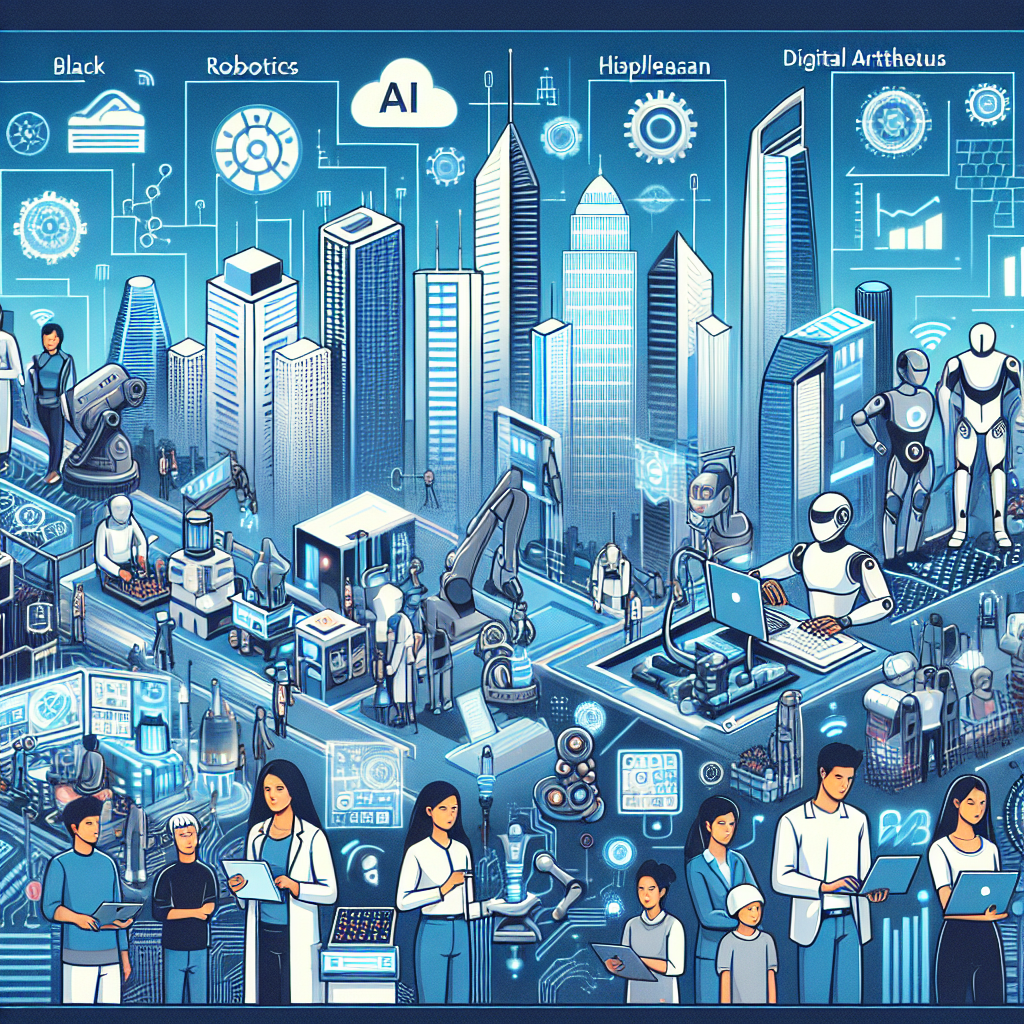The Impact of AGI on Jobs and the Economy: What to Expect
Artificial General Intelligence (AGI) is a term used to describe a form of artificial intelligence that is able to understand, learn, and apply knowledge in a way that is similar to human intelligence. While AGI has the potential to revolutionize many aspects of our lives, one of the key areas where its impact is likely to be felt most profoundly is in the realm of jobs and the economy.
As we move towards a future where AGI becomes more prevalent, there are a number of key questions that need to be addressed. How will AGI affect the job market? What industries are likely to be most impacted by the rise of AGI? How can we prepare for these changes and ensure that the benefits of AGI are distributed equitably across society?
In this article, we will explore the potential impact of AGI on jobs and the economy, and discuss what we can expect in the coming years as this technology continues to evolve.
The Impact of AGI on Jobs
One of the most pressing concerns surrounding the rise of AGI is the potential impact it could have on jobs. As AI becomes more sophisticated and capable of performing a wide range of tasks, there is a real possibility that many jobs currently performed by humans could be automated.
According to a report by the McKinsey Global Institute, up to 800 million jobs worldwide could be automated by 2030, with nearly half of all jobs in the US at risk of being automated. While some jobs are more at risk than others, it is clear that the rise of AGI has the potential to fundamentally change the nature of work as we know it.
Some industries are likely to be more heavily impacted by the rise of AGI than others. For example, jobs in transportation, manufacturing, and customer service are all at high risk of being automated in the coming years. On the other hand, jobs that require a high level of creativity, emotional intelligence, and critical thinking are less likely to be automated.
The Impact of AGI on the Economy
The impact of AGI on the economy is likely to be profound. While automation has the potential to increase efficiency and reduce costs for businesses, it also has the potential to disrupt entire industries and lead to significant job losses.
In the short term, the rise of AGI is likely to lead to widespread job displacement and increased income inequality. Workers in industries that are heavily impacted by automation may find it difficult to find new employment, leading to increased unemployment and economic hardship.
However, in the long term, the benefits of AGI could outweigh the costs. By increasing productivity and driving innovation, AGI has the potential to boost economic growth and create new opportunities for workers. As AI becomes more capable of performing complex tasks, new industries and job roles are likely to emerge, leading to new sources of employment and economic growth.
Preparing for the Impact of AGI
As we move towards a future where AGI becomes more prevalent, it is essential that we take steps to prepare for its impact on jobs and the economy. This includes investing in education and training programs to help workers acquire the skills they need to thrive in a changing job market.
In addition, policymakers need to develop strategies to ensure that the benefits of AGI are distributed equitably across society. This may include implementing measures such as universal basic income or retraining programs to support workers who are displaced by automation.
Ultimately, the rise of AGI has the potential to transform our economy and society in profound ways. By preparing for these changes and working together to address the challenges they present, we can ensure that the benefits of AGI are shared by all.
FAQs
Q: Will AGI lead to mass unemployment?
A: While the rise of AGI has the potential to automate many jobs, it is unlikely to lead to mass unemployment. New industries and job roles are likely to emerge as AI becomes more capable, creating new opportunities for workers.
Q: How can workers prepare for the impact of AGI?
A: Workers can prepare for the impact of AGI by acquiring skills that are less likely to be automated, such as creativity, emotional intelligence, and critical thinking. Investing in education and training programs can also help workers adapt to a changing job market.
Q: What can policymakers do to address the impact of AGI on jobs and the economy?
A: Policymakers can address the impact of AGI by implementing measures such as universal basic income, retraining programs, and regulations to ensure that the benefits of AGI are distributed equitably across society.
Q: Will the benefits of AGI outweigh the costs?
A: While the rise of AGI may lead to job displacement and income inequality in the short term, the long-term benefits of AI are likely to outweigh the costs. By increasing productivity and driving innovation, AGI has the potential to boost economic growth and create new opportunities for workers.

